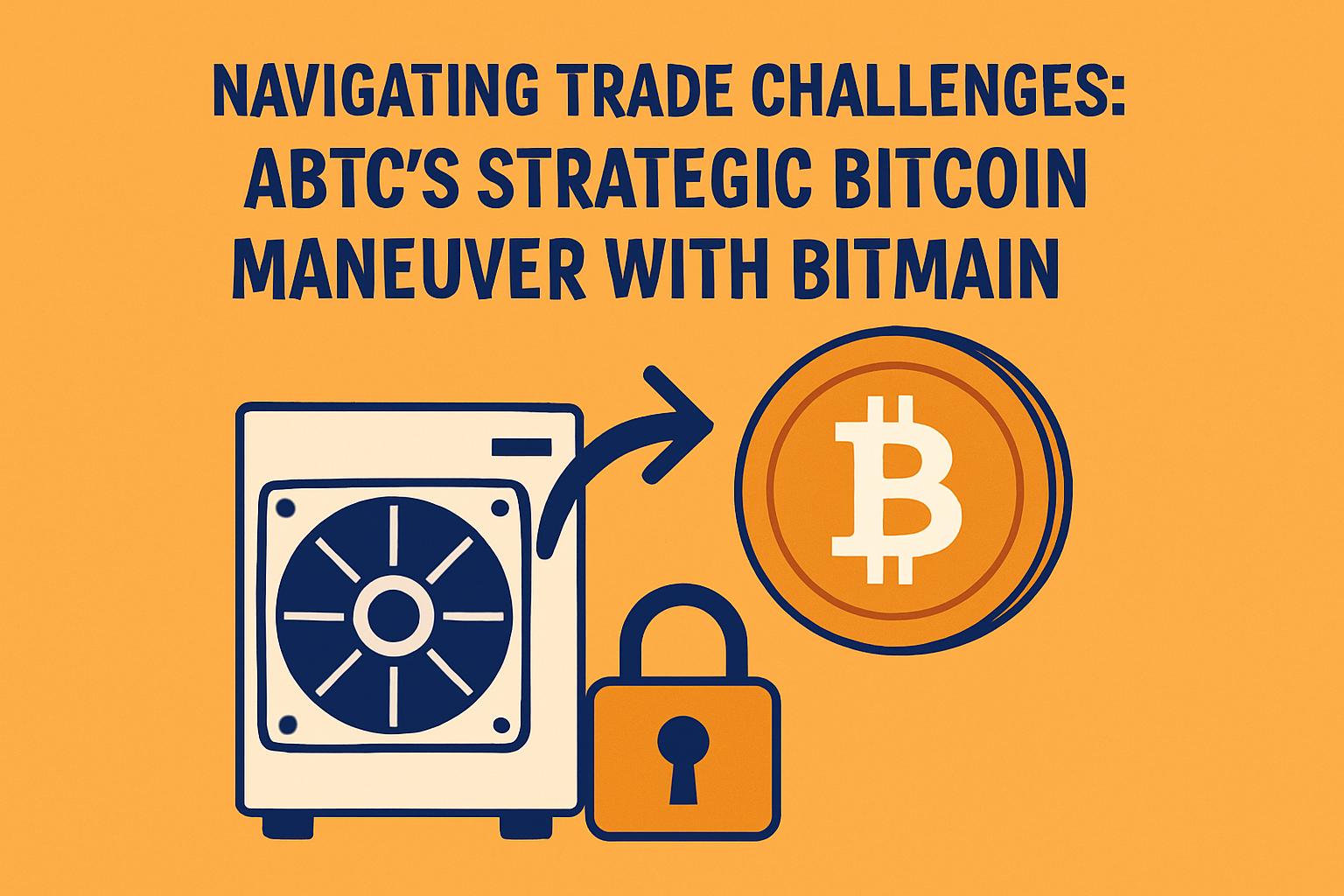In the world of cryptocurrency mining, few deals capture attention quite like the recent move by American Bitcoin Company (ABTC). On August 14, ABTC leveraged 2,234 Bitcoins as a strategic collateral to secure over 17,000 mining rigs from the Chinese industry giant, Bitmain. This transaction is not merely a procurement of hardware; it shines a spotlight on the intricate web of U.S.-China trade tensions, production origins, and shifting investment strategies in mining hardware.
Strategic Use of Bitcoin as Collateral
According to reports, ABTC and Bitmain agreed on an ‘On-Rack Sales Agreement,’ which involves a combination of 2,234 Bitcoins as collateral along with a pre-existing $46 million deposit. This deal, involving mining equipment totaling 14 EH/s, has a preset Bitcoin price and a 24-month redemption period. However, this is only a fraction of the full contract, which allows the purchase of up to 17,280 mining machines, potentially totaling $319.5 million, excluding tariffs and import fees.
The agreement stipulates that ABTC must procure the remaining mining rigs within two months, with an option to pay in cash or use additional Bitcoin collateral. This agreement, which requires installation and operation upon delivery, underlines the strategic financial maneuvers and risk mitigation techniques employed by ABTC.
The Timing of Bitcoin Purchases
Interestingly, just a month prior, ABTC had acquired 1,726 Bitcoins at an average value of $119,120 each, amounting to $205.6 million. This purchase aligns with the strategic objectives of ABTC’s major shareholder, Canadian mining firm Hut 8, to bolster Bitcoin reserves and prepare for new mining equipment deployments. It signals a proactive posture toward future-proofing their operations amidst an evolving market landscape.
Tariff Challenges and Industry Responses
This monumental transaction highlights the emerging structural shifts in the mining machine market. Recently, several U.S. public mining companies, including IREN and CleanSpark, faced tax reassessments by the U.S. Customs and Border Protection (CBP), due to assertions that their mining rigs were Chinese-made. Companies have been quick to counter, presenting supplier documentation to claim otherwise.
Through ABTC’s joint agreement with Gryphon Digital, both companies have stipulated that this hefty $320 million transaction with Bitmain sidesteps potential tariff risks. Meanwhile, Bitmain’s strategic discussions involve potentially manufacturing Antminer machines in the U.S. to circumvent import duties, reflecting a refined adaptation to geopolitical and regulatory pressures.
Changing Market Dynamics in Mining
Contributing to the challenges is a cooling in mining hardware demand. Despite Bitcoin’s bullish trends, mining rig purchases have notably lacked momentum, particularly among large institutions whose purchasing capacities have waned significantly. In response, Bitmain has pivoted, offering the S21e Hydro mining rigs to retail clients, a move previously uncommon when large institutional orders dominated.
This competitive landscape within mining equipment sales points to broader industry adjustments and increasing competition as the overall Bitcoin network hash rate growth slows. As the market recalibrates, companies continue to strategically position themselves in the face of evolving economic and regulatory challenges.

![[News] Bitcoin at a Turning Point? 10x Research Signals a Bullish Macro Shift Ahead](https://cryptoexplores.com/wp-content/uploads/2025/06/new20250616.jpg)
![[News] Binance Lists $HOME, the Gas-Free, Bridge-Free All-in-One DeFi App](https://cryptoexplores.com/wp-content/uploads/2025/06/news20250617.jpg)